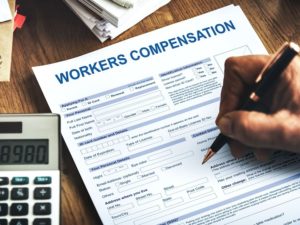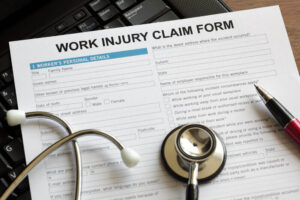In many cases, a worker who has suffered a traumatic physical injury on the job suffers related psychological harm as well. How a worker may react to physical trauma – a deep cut, electrical shock, fall from great height, or loss of a limb – differs for each individual. But it is well established that some people react to traumatic injury in a manner similar to post-traumatic stress disorder (PTSD), which may lead to depression and premature death.
In Kentucky’s workers’ compensation program, an injured worker may obtain reimbursement for the costs of treating psychological injury suffered on the job if “it is a direct result of a physical injury” (Ky. Rev. Stat. 342.0011(1)). This is a stricter standard than in other states, but it can be met. You can obtain the Kentucky workers’ compensation benefits you deserve if your occupational injury has done more than physical harm to you.
An experienced workers’ compensation lawyer from Morgan, Collins, Yeast & Salyer can help you seek the full benefits available by law after a workplace injury. Our law firm has recovered more than $300 million in workers’ compensation benefits for hardworking Kentuckians. We stand ready to fight for you. Contact us today to set up a free legal consultation.
Psychological Responses to Traumatic Physical Injury
There are numerous factors that affect how an individual reacts to trauma. A treatment manual published by the U.S. Substance Abuse and Mental Health Services Administration (SAMHSA) says responses depend on the characteristics of the individual, the type of the event(s), developmental processes, the meaning of the trauma, and sociocultural factors.
Regardless, “traumatic stress reactions are normal reactions to abnormal circumstances.” There are many varied short- and long-term responses to traumatic experiences found among individuals who may seek behavioral health services.
After a traumatic accident, a person may exhibit the following:
- exhaustion
- confusion
- sadness
- anxiety
- agitation
- numbness
- confusion
More severe responses may include continuous distress, severe dissociation symptoms, and intrusive flashbacks that continue despite a return to safety.
Additional delayed responses to trauma can include:
- Persistent fatigue
- Sleep disorders
- Nightmares
- Fear of recurrence
- Anxiety focused on flashbacks
- Depression
- Avoidance of emotions, sensations or activities that are associated with the trauma, even remotely.
These reactions will hinder the injured individual’s ability to engage in daily life activities, including working, sustaining self-esteem, and maintaining interpersonal contacts. Clearly, medical attention is warranted.
Treating the Psychological Effects of Workers’ Comp Injuries
Dr. Kenneth Larsen is a clinical psychologist at New England Baptist Hospital in Boston who treats workers who have sustained mental injuries, such as PTSD, as a result of a workplace injury. Speaking to the Workers’ Compensation Research Institute’s 36th Annual Issues & Research Conference in March 2020, he said workplace injuries often lead to mental health issues, including opioid dependence, depression and even suicide, according to a Business Insider report.
Providing early mental health treatment is key to a faster return to work, Larsen said. Larsen said that companies that communicate compassion to their workers see workers return to work more quickly than companies with a hands-off approach.
Mary Christiansen, the workers’ compensation claim manager for the electric utility Southern California Edison Co., told the conference her company developed a counseling program for workers’ comp recipients as part of its employee assistance program in 2017. It helps return injured employees to work and provides assistance for external factors, such as depression, and financial or family problems that can often accompany a workplace injury.
“Since the program’s implementation, the company’s overall claims costs have continued to decline, she said, and workers’ compensation claims that have historically come after an employee has taken Family and Medical Leave Act leave are also down,” Business Insider says.
Elsewhere, workers’ compensation claims adjuster Kristin Bowen writes that claims handlers should keep the possibility of post-injury depression in mind and maintain sensitivity and compassion when they recognize issues. Treating psychological injury, though an added cost, saves money in the long-term, she argues.
“Coupled with physical injury, post-injury depression can prolong recovery, delay return to work, and complicate the resumption of pre-injury function and activity levels,” Bowen says. “If the psychological effects are diagnosed and treated in conjunction with the physical injury, this will add time, resources, and money to the management of the physical injury, including longer periods off work, possible counseling, and added prescription costs. …
“To help promote the injured party’s recovery, both physically and mentally, it’s best that we provide the support and means to address this ever-growing challenge.”
Convincing Your Company of Your Workers’ Comp Injury Needs
The psychological impact of trauma and the value of mental health services for healing are not breaking news. However, some employers are more enlightened than others. Unfortunately, it’s just as likely, if not more so, that your employer (and/or their workers’ compensation insurer) will seek to deny payments for mental health care after a workplace injury.
In some cases, Kentucky’s workers’ comp does cover the treatment of psychological injuries and you can get a psychiatric workers’ comp settlement for depression, PTSD or a similar issue.
In multiple court cases over the years, the Kentucky Supreme Court has expanded the definition of injury for workers’ comp claims, and exhibited “a growing appreciation … of the seriousness of mental injuries.”
In a case known as Richard E. Jacobs Group, Inc. v. White, the Supreme Court of Kentucky reiterated that a mental injury must result from a “work-related traumatic event,” as the statute says, and ruled that physical exertion at work – in White’s case, performing CPR on an injured man – could constitute a physically traumatic event.
As the author cited above suggests, “The White decision might allow a worker executing their daily duties to be compensated for mental injuries resulting from exertion,” a broad definition, indeed.
Our larger point is that there is reason to fight a denial of workers’ compensation benefits for mental health counseling and similar services connected to an occupational injury. Medical and legal professionals increasingly recognize that providing such services is morally correct, economically beneficial to the employer and within what Kentucky law says is appropriate.
It takes courage to stand up and say your claim is valid when you are denied. Let Morgan, Collins, Yeast & Salyer add the Kentucky Courage your workers’ compensation claim needs to recover the full benefit you deserve.
The post Moving Beyond Physical Injuries for Workers’ Compensation appeared first on Morgan, Collins, Yeast & Salyer.
from Morgan, Collins, Yeast & Salyer https://www.kentuckycourage.com/blog/moving-beyond-physical-injuries-for-workers-compensation/
via https://www.kentuckycourage.com




 to stand up to insurance companies and demand justice. We have helped many Kentuckians pursue full and fair compensation for their losses in car accidents. We want to help you, too.
to stand up to insurance companies and demand justice. We have helped many Kentuckians pursue full and fair compensation for their losses in car accidents. We want to help you, too. 
